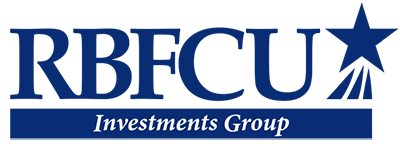How Women Can Prepare for The Great Wealth Transfer
Over the next few years, Baby Boomers are projected to pass down trillions of dollars in assets to heirs — mostly Gen X and Millennials — setting the stage for a historic wealth transfer. How might women prepare for this shift?
.jpg?sfvrsn=3732b3a8_4)
Major press agencies have described an anticipated significant shift in assets between 2023 and 2045.
Through what is being called "The Great Wealth Transfer," women will likely emerge as the biggest beneficiaries. But are women collectively ready for this tremendous change?
Whether you’re hesitant or confident to hold your family’s financial reins, below are three main ways you can prepare for this unprecedented financial shift.
Create conversations, competence and confidence
Aging Boomer parents often resist talking to their adult Gen X and Millennial children about their finances. And vice versa. After all, it can be a delicate, sensitive topic since it involves contemplating one’s own mortality or that of a beloved family member.
But having a conversation about money is vital to ensuring that the transfer of wealth is transparent and seamless — and in keeping with everyone’s best intentions.
“Often adult children have no idea what accounts their parents have. And they may not even know the names of their financial planner, lawyer or accountant,“ said Terence F. Powell, Jr., AIF®, Investment Program Manager for RBFCU Investments Group. “No doubt, talking about money with aging parents is difficult, but it is essential to estate planning and wealth transfer.”
In the short run, it’s helpful to assess where funds are located, who can access them, and what instruments (e.g., trusts, wills) can be used to disperse money as the elder family member sees fit. There may also be conversations to be had about leaving a legacy to a beloved charity or favorite university.
In the long run, women who inherit these assets may also want to think through how to transfer their own wealth eventually.
And then there’s the opportunity to spark age-appropriate conversations with younger generations, too, so that the entire family grows confident around the topics of money and finances.
In fact, Powell encourages all parents to normalize talking to their children about money and investing — yes, even with young children and grandchildren.
“You don’t have to share actual numbers with young children or teens. You might just talk in percentages about how your money is allocated. As they get older, you may want them to also know the professionals in your life who are helping you manage your wealth,” he said, adding that the “important thing, especially for girls and young women, is that we normalize talking about money, including the ways that they can potentially build, grow and manage it.”
Move from “heirs” to “investors”
Timing is important to consider, too. Often, when women do inherit substantial assets from a family member, they’re also busy raising kids and building careers. Still, it’s essential to pause and reflect upon what they've inherited and how these new assets fit into their existing financial goals, be it to plan for retirement, travel widely, launch a new business or help fund college for the next generation.
With the right financial advisor, many women discover that their clear, focused vision for financial success coupled with a willingness to be patient make them good investors.
One potential strength women may bring to investing? They may be more inclined to embrace a long-term, goal-based investment strategy versus a competitive, "beat-the-market" approach. Consequently, they may tend to worry less about trying to predict market moves.
Powell noted that this mindset is driven more by logic and less by emotion. And that can prove effective.
“With emotions driving people's decisions, greed and fear being the main ones, you tend to invest differently. When the market is doing well, the greed part kicks in because you have all this growth and an investor might think, ‘I'm not going to be conservative with my investments.’ But then the bottom falls out, like in 2007 and 2008, and now the investor is reacting in fear and trying to sell everything.”
Powell advises all investors, including women, to clearly define their personal long- and short-term goals. “A long-term goal might be when you’d like to retire. A short-term goal might be when you’d like to purchase a house. Both types of goals are equally important and deserve attention from you and your financial advisor.”
Find the right financial advisor
All women — from full-time caregivers supporting children and parents to successful business professionals contributing to the economy — deserve to be heard when financial decisions are being made.
Powell emphasized that a good financial advisor is going to agree with that statement.
If you find yourself preparing to manage inherited funds, it’s smart to have already established a good relationship with a financial advisor. Are you in the market for a new one? Seek out someone who is committed to building a long-term relationship based on good communication and best practices, much as you would when selecting a doctor, accountant or lawyer.
» Tip: Curious to hear additional insights directly from our female financial advisors? Two of them have shared their thoughts on what smart women know about investing.
“I'm proud that our operations and financial advising teams are culturally diverse and are a mix of men and women,” said Powell, adding that RBFCU Investments Group not only offers one-to-one financial advising but also webinars and seminars to help potential clients get acquainted with the team.
“Providing guidance and building relationships are essential to the work we do,” Powell added. “My best advice for women facing wealth transfers within their families? Have an initial consultation with one of our financial advisors. It’s free, and it may prove to be an important first step toward financial satisfaction and more confidence.”




